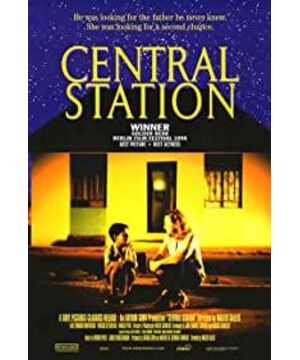If a film does not have a situational model, the portrayal and presentation will become blunt and far-fetched. In this film about the search, that aspect is best illustrated by the music from the beginning to the end. In addition to language, what is left to clearly articulate ideas and meanings is the music played by the dull piano and cello. Full of symbolism, it sublimates the connotation of the film.
Director Walter Celis once said, "A boy is looking for his father, a woman is looking for her refuge, and this country is looking for its home". This film reflects the return and exploration of human nature. In this densely populated, resource-scarce, and economically depressed city, the relationship between people has also become cold. When life doubts beauty, when love has long since died, when hope has come to an end, everything people do becomes full of compassion and worthy of sympathy.
Although this film directly expresses the cruelty of social reality, there are many artistic descriptions. One of the most revealing is the depressive music.
In the film, the heroine Dora writes letters on behalf of Grand Central Station, and none of the letters that pass her execution reach the recipients. Joshua's appearance is more like an oath to such a despot, using his pursuit of hope against Dora's lies and pretense. When Dora shows up at Grand Central Station, people gather in an endless stream to say what they have to say to the recipient, and the music is slow and smooth, warm and worth looking forward to. Then Dora was about to take the train to leave the station, and the rhythm of the music began to pick up, echoing Dora's hurried pace. She was rushing to catch the train while being in the middle of the crowd. Dora has been unable to be moved by the things around her, she closed her emotions and lived a serious life. When she got off the train and walked home, the music was soothing again, returning to the place where she kept the remaining warmth.
Joshua's mother was killed by a fast bus and he was lost in the city. The music only left the cello playing sadly, sad and sad. The insignificant Joshua seemed even more insignificant in this city, without dependence or pity. Life became hard, even eating was difficult. It is more like this country has no support in the world, is struggling, and cannot find the spirit of support. Human nature begins to decline, and the feelings between people are even more nonsense.
As Dora flees with Joshua in search of his father, the music resumes the opening piano solo. They hope to find a home, Joshua finds a father he has never met, Dora finds the hope in people's hearts. When Dora is rejected for revealing her feelings to the man she meets along the way, the music is simply acoustic guitar. I think Dora doesn't need too gorgeous music at this time. She is very clear that pure love has long gone away from him, short-lived, decisive, but lingering and blurring like the sound of a guitar. Joshua found the house where his father used to live according to the address, thinking that his eyes were full of longing for family affection as hope was about to become a reality. The soundtrack at this time is an ensemble of guitar and cello, but it is not smooth and more revolving, indicating that Joshua's search has not yet reached the end.
When they had no money to buy anything to make up for their hunger, Joshua thought that they could continue to write letters for people, as if everything was back to the beginning, and the music was also the piano sound of the title. But instead of judging the fate of the letters this time, Dora sends them to the post office. Dora's mind has changed along the way, and her desire for true love has also been infected by Joshua. Likewise, they use this piece of music when they think that such a search will no longer be fruitful.
Joshua's brother appears and his home is found. The hope came true, and Joshua found a home. Dora knew it was time for her to leave. She put on the new dress Joshua had bought for her, left him, and said goodbye to this arduous search. But at this time, she is no longer like yesterday, life is full of hope for her, and it has taught her to love and forgive. Music seems to have come to the end. Although it is very sad, it makes us feel that the indifference and estrangement of human feelings have been eliminated, and life needs us to face it with sincerity.
Although the movie didn't give us a clear answer at the end, it didn't tell us how to treat life, but we have seen the brilliance of life in this search.
This is a review I wrote a long time ago.
At that time, the feeling was very strong, or it was the emotion of a sad world, or the admiration for the charity of human nature, or the compassion for the long road.
View more about Central Station reviews










